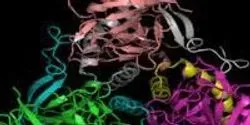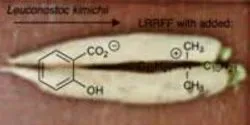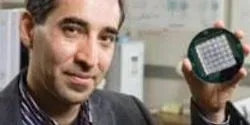News

A newly developed spectroscopy method is helping to clarify the poorly understood molecular process by which an anti-HIV drug induces lethal mutations in the virus’ genetic material. The findings from the University of Chicago and the Massachusetts Institute of Technology could bolster efforts to develop the next generation of anti-viral treatments.

Take a material that is a focus of interest in the quest for advanced solar cells. Discover a "freshman chemistry level" technique for growing that material into high-efficiency, ultra-small lasers. The result, disclosed today (Monday, April 13) in Nature Materials, is a shortcut to lasers that are extremely efficient and able to create many colors of light.

Research from the University of Manchester using cutting edge computer analysis reveals that despite mutating, Ebola hasn’t evolved to become deadlier since the first outbreak 40 years ago.

$2.2 million study to explore how signals in the physical environment shape persistence and performance.

Refrigeration and air conditioning may become more efficient and environmentally friendly thanks to the patent-pending work of Louisiana State University (LSU) physicists. The team of researchers led by LSU Physics Professor Shane Stadler has discovered a breakthrough magnetocaloric material that may change the energy industry, including air conditioning and food refrigeration.
















